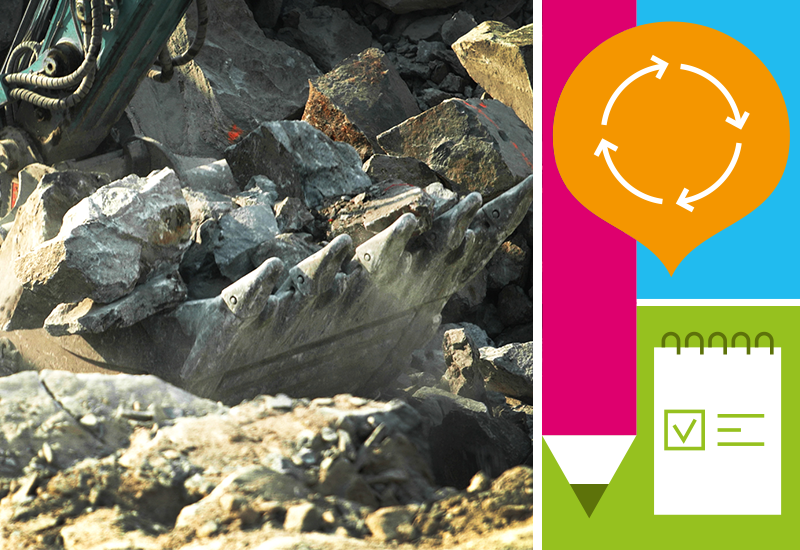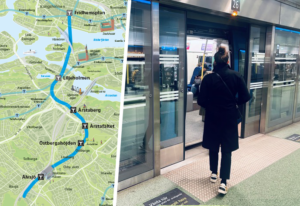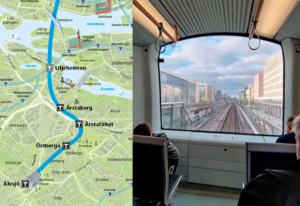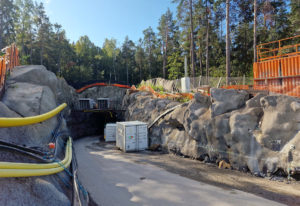Region Stockholm has reviewed the greenhouse gas emissions stemming from the construction of access tunnels for the new metro. All of these contracts have achieved their climate goals with much room to spare.
Various measures to reduce emissions
On average, the construction projects have reduced their emissions by 32 percent. All in all, they have saved more than 6,000 tonnes of greenhouse gases. This is equivalent to the total annual emissions of several hundred Swedish households.
“Thanks to a variety of measures, emissions have been kept down,” says sustainability strategist Olivia Engstrand.

These include the use of electricity and diesel from renewable sources and concrete and steel with smaller carbon footprints, fewer and shorter transport runs, and one project that housed staff facilities in existing buildings rather than portable cabins.
Two access tunnel construction projects, one in Hagalund in the north and one at Hammarby fabriksväg in the south, were completed by the same contractor. By closely coordinating the two projects, the contractor managed, among other things, to reduce their carbon emissions.
“The contracts in Hagalund and at Hammarby fabriksväg have saved both resources and emissions by working together. For example, they’ve coordinated their material transport runs from factories, shared machinery with each other and used surplus materials in the projects to work efficiently and avoid unnecessary waste,” Engstrand explains.
Reaching goals by establishing requirements
The construction sector is responsible for a sizeable share of Sweden’s greenhouse gas emissions. The new Stockholm metro expansion is no exception. The project tries to reduce its unavoidable environmental impact, including by means of an overall climate goal. Proactive measures are to reduce this climate impact by 25 percent compared to taking no measures. According to the latest forecast, so far the metro construction project has cut its climate impact by about 30 percent.
“As a public service organisation, we must help manage our natural resources and there’s much we can do. It’s important that we establish requirements for our procured planners, contractors and operators,” says Engstrand.
Among the requirements that FUT, the department responsible for the expanded metro, has established for the access tunnels is that the contractors shall take a proactive approach to preventing and reducing unnecessary resource use and reducing climate impact. They are to organise workshops, prioritise improvement measures, establish goals, perform calculations and report results. Now that the construction work has been completed, FUT has compiled all the figures.
“We’re satisfied with the results and with all the experience gained from the various climate-saving measures. Our systematic sustainability work and the requirements we established provide everyone with lessons learned – not only our contractors, but also the entire industry. This is challenging work, even for us. So, as a client, we have to be on the ball at all times,” says Engstrand.








